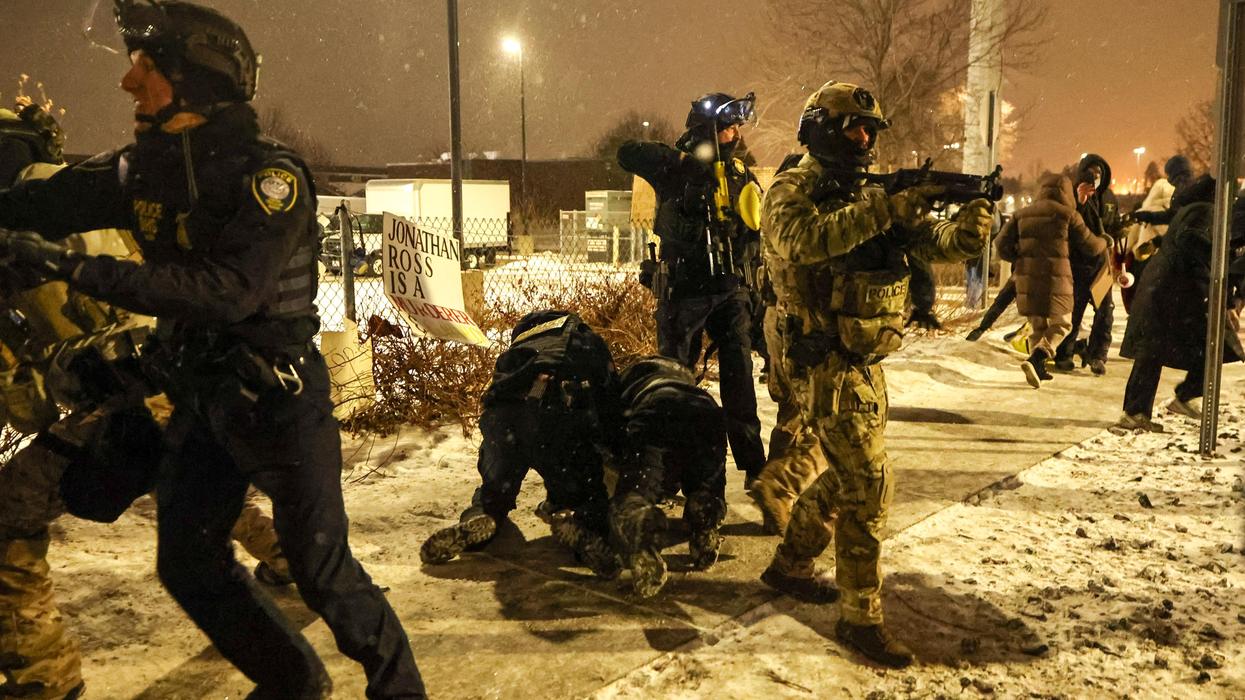The Israeli government is preparing to launch a ground assault on Rafah in southern Gaza as their devastating military campaign enters its fifth month. The Israeli prime minister, Benjamin Netanyahu, was adamant that the assault would happen: “We’re going to do it.”
This, after Israel started an aerial bombardment against Rafah, killing nearly 70 civilians as of Monday morning.
As deadly as the war has been for Palestinian civilians so far, the next phase could be even more terrible. More than a million Palestinians have crowded into Rafah over the course of the war and there is nowhere left for them to go. Even some of Israel’s most reliable supporters in the U.S. and Europe fear that a military operation in Rafah would be catastrophic for the people of Gaza.
The German government, normally a backer of Israel’s war, said earlier this month that an attack on Rafah would “simply not be justifiable.”
The proposed assault is also roiling Israel’s relations with Egypt. The Egyptian foreign minister, Sameh Shoukry, said that an assault would have “disastrous consequences.” According to the Associated Press, two Egyptians officials said that Egypt might even suspend its 1979 treaty with Israel if the ground assault goes ahead.
This might be an idle threat, but the fact that it is being made at all is a measure of how bad relations between Israel and Egypt have become. Because Rafah is on the Egyptian border, the assault would create a refugee crisis that Egypt has been desperate to avoid. The Egyptian government doesn’t want to be seen as permitting the forced displacement of Palestinians, nor does it want to have to bear the costs of Israel’s campaign.
The Biden administration issued a pro forma warning that the operation “should not proceed without a credible and executable plan for ensuring the safety of and support for the more than one million people sheltering there,” but this warning, like others before it, has no teeth because there is no reason to believe there will be any consequences if Netanyahu ignores it.
At each stage of the war, the administration has urged the Israeli government to adhere to international law and protect civilians only for Israeli forces to wage one of the most destructive campaigns of the twenty-first century that has resulted in tens of thousands of civilian casualties in just four months. Netanyahu has correctly assumed that he can afford to disregard Washington’s requests because he and his government pay no price when they do so.
There are reports that Biden is becoming more frustrated with Netanyahu, but these leaks about Biden’s frustration seem to be entirely for domestic consumption. They do not suggest that there will be any change in policy. In fact, in some of the same reports administration officials say that the president and his advisers “continue to believe his approach of unequivocally supporting Israel is the right one.” The president’s comments last week in which he seemed to criticize Israel’s campaign are similarly meaningless if they do not lead to actions aimed at reining Netanyahu in.
The president’s “no daylight” approach to Israel and the war in Gaza was a serious mistake from the start, and it has clearly failed on its own terms. Far from gaining the Israeli government’s trust, this approach signaled to Netanyahu that he could safely ignore all U.S. complaints and concerns. The assumption that uncritical support for the war would buy the U.S. greater influence with the Israeli government has been tested and proven wrong.
Washington’s refusal to use its leverage has left the U.S. in the absurd position of enabling Israeli violations of international law while feebly asking for the violations to stop.
Unconditional U.S. backing for the war has enabled a rolling campaign of ethnic cleansing as the Palestinian population has been displaced from one part of the Gaza Strip after another. While the Biden administration keeps saying that the population should be allowed to return to their homes, the Israeli military has so thoroughly destroyed the infrastructure and housing across much of the territory that there is nothing for the people to return to later.
Almost the entire population has been displaced by the war, but each supposed refuge that they find in the south has quickly become a new war zone. There are no other refugees left. There is no safe place for the people in Rafah to go to now. If the Israeli military repeats what it did in Gaza City and Khan Yunis, Rafah will be left as a smoldering ruin and the civilian death toll will skyrocket.
Gaza’s humanitarian crisis is already severe and continued fighting ensures that it will get worse. An assault on Rafah would be a death sentence for tens of thousands of people and possibly for many more than that. The people of Gaza were already teetering on the edge of the abyss, and this assault would push many of them over the edge.
There have been many opportunities over the last four months for the U.S. to end its blanket support for this war and to demand a ceasefire, but so far the president has failed to take advantage of them. Halting the ground assault on Rafah might be the last chance that the Biden administration has to prevent an even greater humanitarian disaster.
The U.S. needs to make a dramatic change in its policy regarding Israel and the war in Gaza. The Biden administration needs to stop providing unconditional support for the war, it needs to restore funding to the UN Relief and Works Agency (UNRWA) that it wrongly stopped, and it needs to back up its previously empty warnings with serious penalties in the form of aid cutoffs and targeted sanctions on top officials if the Israeli government won’t halt the assault.
Beyond preventing the ground assault on Rafah, the U.S. should also be pressing Israel for a full and permanent ceasefire and a lifting of the blockade that has created famine conditions in Gaza. These are all things that the U.S. should have done months ago, but there is still time to correct course and prevent the worst-case scenario.
- Biden needs to stop coddling Bibi ›
- Did Biden just escalate the Gaza War? ›
- On air, Biden walks back is own Rafah 'red line' in real time | Responsible Statecraft ›
















